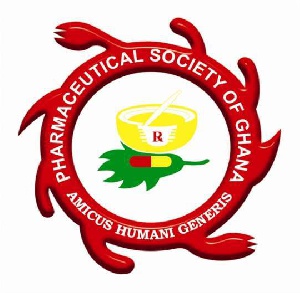The Pharmaceutical Society of Ghana (PSGH) has asked its members to critically verify prescription forms requesting for antibiotics before dispensing to members of the general public.
According to it, the country risks higher level of antibiotic resistance due to the abuse of antibiotics and other medications by the public to protect against the coronavirus disease (COVID-19).
“If we are not careful after COVID-19, we will have another crisis on our hand because antibiotic resistance may be on the increase with the panic buying of these medications and its improper use,” Vice President of the PSGH, Yvonne Yirenkyiwaa Esseku said in an interview with the Ghanaian Times yesterday.
Antibiotic resistance, a global public health problem, happens when bacteria change in response to the use of medicines thus defeating the purpose of the drugs designed to kill them.
Following the outbreak of COVID-19 in the country, media reports have emerged of some members of the Ghanaian public patronising prescription-only antimicrobial drugs like azithromycin and ivermectin from various pharmacies to guard against the infection.
Ms Esseku implored pharmacists not to dispense antibiotics without prescription and “in cases where clients present a prescription form, make sure you authenticate it”, in order to curb the threat.
“We are seeing questionable prescriptions nowadays. Sometimes, it is an ordinary text message to buy a drug, other times it is scanned on a phone without the prescription on phone so we encourage pharmacists to insist that prescription forms bear the name of the physician, the facility and other contact details for traceability,” she urged.
Ms Esseku asked the public to desist from buying medicines without being prescribed by a doctor, urging that they seek medical attention should they develop symptoms of any ailment rather than resort to self-medication.
“Medicines are often used for different levels of disease management so, if you take a medication which is for a serious level as a preventive measure, you are exposing yourself to resistance because at a time you may really need them for kind of infection, it will not work for you because the microorganism that may be causing that problem has already been exposed to the medicine,” she explained.
While urging all members to continue abiding by the COVID-19 safety protocols at their workplaces, Mr Esseku, encouraged members of the public to do same by particularly wearing their masks, practicing regular hand washing and physical distancing.
Health News of Tuesday, 9 February 2021
Source: ghanaiantimes.com.gh













